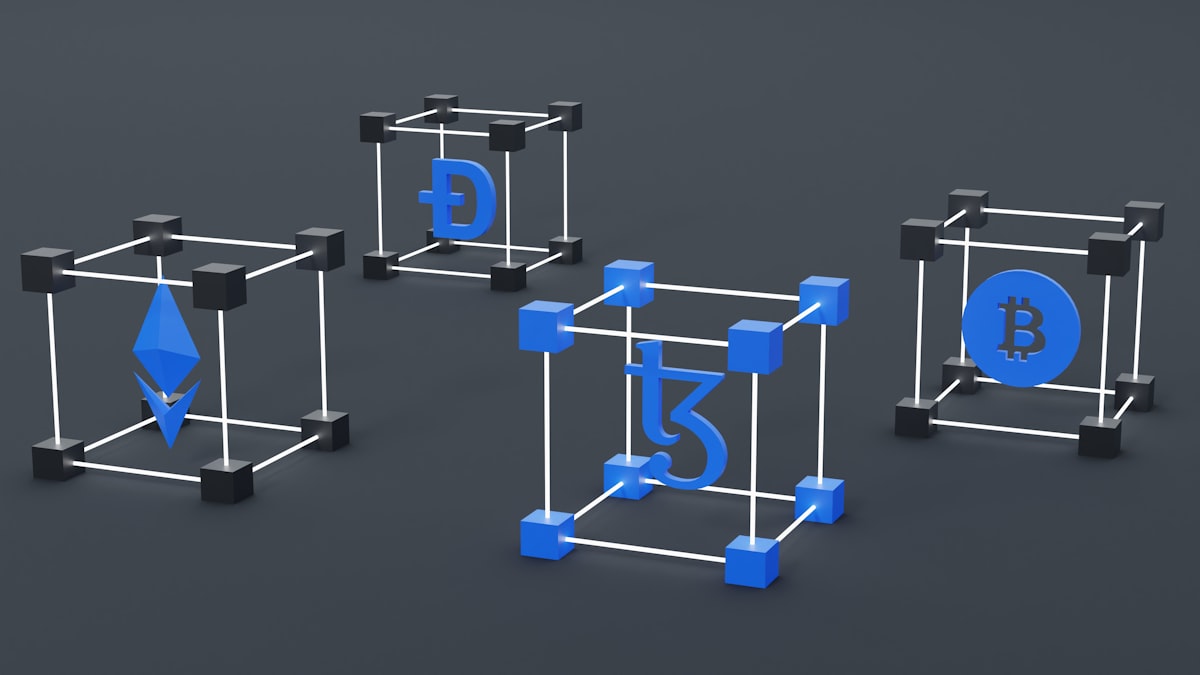The impact of web3 on the way we think about and use money.

Web3 is the third generation of the World Wide Web, which is based on the decentralized ledger technology of blockchain. With web3, we can think about and use money in a completely new way.
The first generation of the web was based on centralization, which led to a lot of problems. The second generation, web2, was based on decentralization, which solved many of those problems. Now, with web3, we can take advantage of the best of both worlds.
With web3, we can have a decentralized web that is also secure and private. We can use blockchain to create a global financial system that is fair and transparent. And we can use smart contracts to automate many of the processes that we currently have to do manually.
The possibilities are endless. And the impact of web3 on the way we think about and use money will be profound.
What is web3?
In the simplest terms, web3 is the next generation of the internet. It is a decentralized platform that enables users to interact with applications and services in a completely peer-to-peer manner. No middlemen or intermediaries are needed in order for users to access or use web3 applications.
The web3 stack is made up of a number of different technologies, including the Ethereum blockchain, smart contracts, decentralized storage, and more. Together, these technologies allow for the creation of truly decentralized applications (dApps) that can be used by anyone in the world.
One of the key advantages of web3 is that it is much more secure than the traditional centralized web. Because there is no central point of control, there is no single point of failure that can be exploited by hackers. Additionally, all data and transactions on the web3 platform are encrypted, which makes it extremely difficult for anyone to tamper with or steal data.
Another key advantage of web3 is that it is much more efficient than the traditional web. Because there are no intermediaries or middlemen involved, transactions can be processed much faster and at a lower cost. This is particularly beneficial for businesses and individuals who need to send or receive payments quickly and cheaply.
Overall, web3 represents a major upgrade to the traditional web. It is more secure, efficient, and offers a number of other advantages that make it the ideal platform for a wide range of applications and services.
The benefits of web3
The benefits of web3 are many and varied, but perhaps the most important is that it enables the development of decentralised applications (dApps). dApps are applications that run on a decentralised network, such as the Ethereum network, and are not controlled by any central authority. This means that they are not subject to the same regulations and restrictions as traditional applications, which gives developers a lot more freedom to create innovative and exciting applications.
Some of the other benefits of web3 include:
- Increased security: dApps are much less likely to be hacked than traditional applications, as there is no central point of attack.
- Censorship resistance: dApps cannot be censored or shut down by any central authority.
- Tamper proof: dApps cannot be tampered with or altered in any way, as they are stored on a decentralised network.
- Open source: dApps are usually open source, which means that anyone can audit and improve the code.
Overall, web3 provides a much more secure and flexible platform for developers to create innovative applications.
How will web3 change the way we use money?

Web3 will change the way we use money by making it more accessible and convenient to use. For example, web3 wallets will allow users to store their funds in a variety of different currencies, making it easy to use multiple currencies for different purposes. In addition, web3 wallets will allow users to send and receive payments without having to go through a bank or other financial institution. This will make it easier for people to conduct transactions without having to worry about fees or exchange rates.
There are a few ways to make money in web3. The most common is through providing services to the users of web3 applications. This can take the form of developing smart contracts, designing dapps, or offering consulting services.
Another way to make money in web3 is through investing in new projects and tokens. This can be done by buying tokens during an ICO or participating in a token sale. Finally, you can also make money by writing articles or creating content about web3 projects and applications.
Further reading: dapps
Conclusion:
When it comes to money, we’ve been using the same methods for centuries. We carry physical cash, we use credit and debit cards, and we store our money in banks. But what if there was a better way to manage our finances? What if there was a way to make money work for us, instead of us working for money?
Enter web3.
Web3 is a new way of thinking about and using money. It’s based on the idea that money should be more than just a medium of exchange – it should be a tool that we can use to improve our lives.
With web3, we can do things like earn interest on our savings, borrow money without having to go through a bank, and even get paid for doing things that we’re already doing (such as watching videos or browsing the web).
What’s more, web3 is based on the blockchain, which means that it’s incredibly secure and transparent. That’s important, because it means that we can be sure that our money is safe, and that we know where it’s going.
In short, web3 is a game-changer for the way we think about and use money. It has the potential to improve our financial wellbeing in a way that traditional methods simply can’t match. So if you’re looking for a better way to manage your money, web3 is definitely worth checking out.
